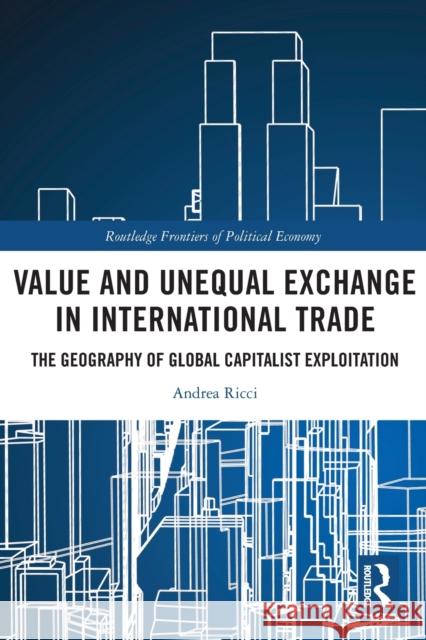Value and Unequal Exchange in International Trade: The Geography of Global Capitalist Exploitation » książka
Value and Unequal Exchange in International Trade: The Geography of Global Capitalist Exploitation
ISBN-13: 9780367513993 / Angielski / Miękka / 2023 / 228 str.
Value and Unequal Exchange in International Trade: The Geography of Global Capitalist Exploitation
ISBN-13: 9780367513993 / Angielski / Miękka / 2023 / 228 str.
(netto: 185,01 VAT: 5%)
Najniższa cena z 30 dni: 191,37
ok. 22 dni roboczych
Dostawa w 2026 r.
Darmowa dostawa!
Contrary to the claims made by neoliberal governments and mainstream academics, this book argues that the huge increase in trade in recent decades has not made the world a fairer place: instead, the age of globalization has become a time of mass migration caused by increasing global inequality.
Contrary to the claims made by neoliberal governments and mainstream academics, this book argues that the huge increase in trade in recent decades has not made the world a fairer place: instead, the age of globalization has become a time of mass migration caused by increasing global inequality.
The theory of unequal exchange challenges the free trade doctrine, claiming that transfers of value from poorer to richer countries are hidden behind apparently equivalent market transactions. Following a critical review of the existing approaches, the book proposes a general theory of unequal exchange in the light of an innovative reconstruction of Marx’s international law of value, in which money and exchange rates play a crucial role in decoupling value captured from value produced by different countries, even in perfectly competitive world markets. On this theoretical basis, the book provides an empirical analysis of the international transfers of value in both traditional trade and Global Value Chains. The resulting world mapping of unequal exchange shows the geographical hierarchy of capital global exploitation by revealing a world divided into two quite separate camps of donor and receiving countries, the former being the poorer countries and the latter the richer countries.
This book is addressed to scholars and students of economics and social sciences, as well as activists of the North and the South, interested in a better understanding of the asymmetric power relations implied in global trade. It makes a significant contribution to the literature on political economy, trade, Marxism, international relations, and economic geography.











